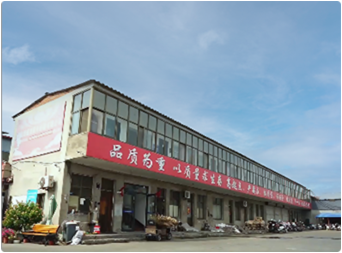11월 . 10, 2024 06:43 Back to list
Applications and Benefits of Expandable Bolts in Construction and Engineering Projects
Understanding Expandable Bolts A Comprehensive Guide
Expandable bolts, also known as expansion anchors or expansion bolts, have become an essential fastening mechanism in various construction and engineering applications. These versatile components are designed to securely anchor objects to substrates like concrete, bricks, or masonry, providing stability and strength in numerous settings. This article delves into the mechanics, applications, benefits, and installation process of expandable bolts, highlighting their significance in modern construction and repair projects.
Mechanics of Expandable Bolts
The primary functioning principle behind expandable bolts is simple yet effective. They consist of a bolt surrounded by a sleeve that expands when the bolt is tightened. This expansion causes the sleeve to grip the sides of the pre-drilled hole in the base material. The friction created by this grip is what holds the bolt in place, making expandable bolts ideal for use in materials where traditional screws would not provide enough holding power.
Expandable bolts are available in various designs, including mechanical and chemical anchors, each suited to different applications. Mechanical expandable bolts utilize a physical mechanism for expansion, while chemical anchors rely on adhesive properties for securing the bolt in place. The choice between these types depends largely on the specific use case and environmental conditions.
Applications of Expandable Bolts
Expandable bolts are commonly used in construction to secure structural components, such as beams, brackets, and shelves. Their applications also extend to home improvement projects, such as installing heavy fixtures like chandeliers, awnings, or outdoor furniture. Furthermore, they are often employed in the automotive industry for attaching components to vehicles, as well as in industrial settings for machinery installation.
Aside from their customary uses, these bolts are invaluable in specialized environments. For instance, in seismic areas, expandable bolts are utilized for securing elements that must withstand vibrations and movements during earthquakes. Similarly, in marine applications, stainless steel expandable bolts are favored for their resistance to corrosion, ensuring longevity even in harsh conditions.
Benefits of Using Expandable Bolts
expandable bolts

One of the primary advantages of expandable bolts is their strength and reliability. They provide an excellent holding capacity, making them suitable for heavy loads. Additionally, their design allows for easy installation, requiring only the ability to drill a hole and tighten the bolt. This ease of use can save time and labor costs during installation.
Another significant benefit is their versatility. Expandable bolts can be used in various substrates, from concrete to brick and even hollow masonry. This adaptability makes them a go-to solution for professionals and DIY enthusiasts alike.
Moreover, when installed correctly, expandable bolts exhibit minimal displacement, reducing the risk of material damage. This feature is particularly important when working with fragile surfaces or when aesthetics are a concern.
Installation Process of Expandable Bolts
Installing expandable bolts involves a straightforward procedure. First, a hole must be drilled into the substrate using a drill bit that matches the diameter of the bolt. The depth of the hole is also crucial; it should be deep enough to accommodate the entire length of the bolt.
Once the hole is prepared, the bolt is inserted, and as it is tightened, the sleeve expands against the walls of the hole, creating a robust anchor. It’s vital to adhere to the manufacturer’s specifications regarding torque to ensure optimal performance.
Conclusion
In summary, expandable bolts are a reliable and versatile fastening solution in various applications, from construction to automotive and marine industries. Their strength, ease of installation, and adaptability make them indispensable for professionals and DIY enthusiasts alike. Whether securing a shelf or anchoring heavy machinery, understanding how to effectively use expandable bolts can significantly enhance the safety and durability of any project.


